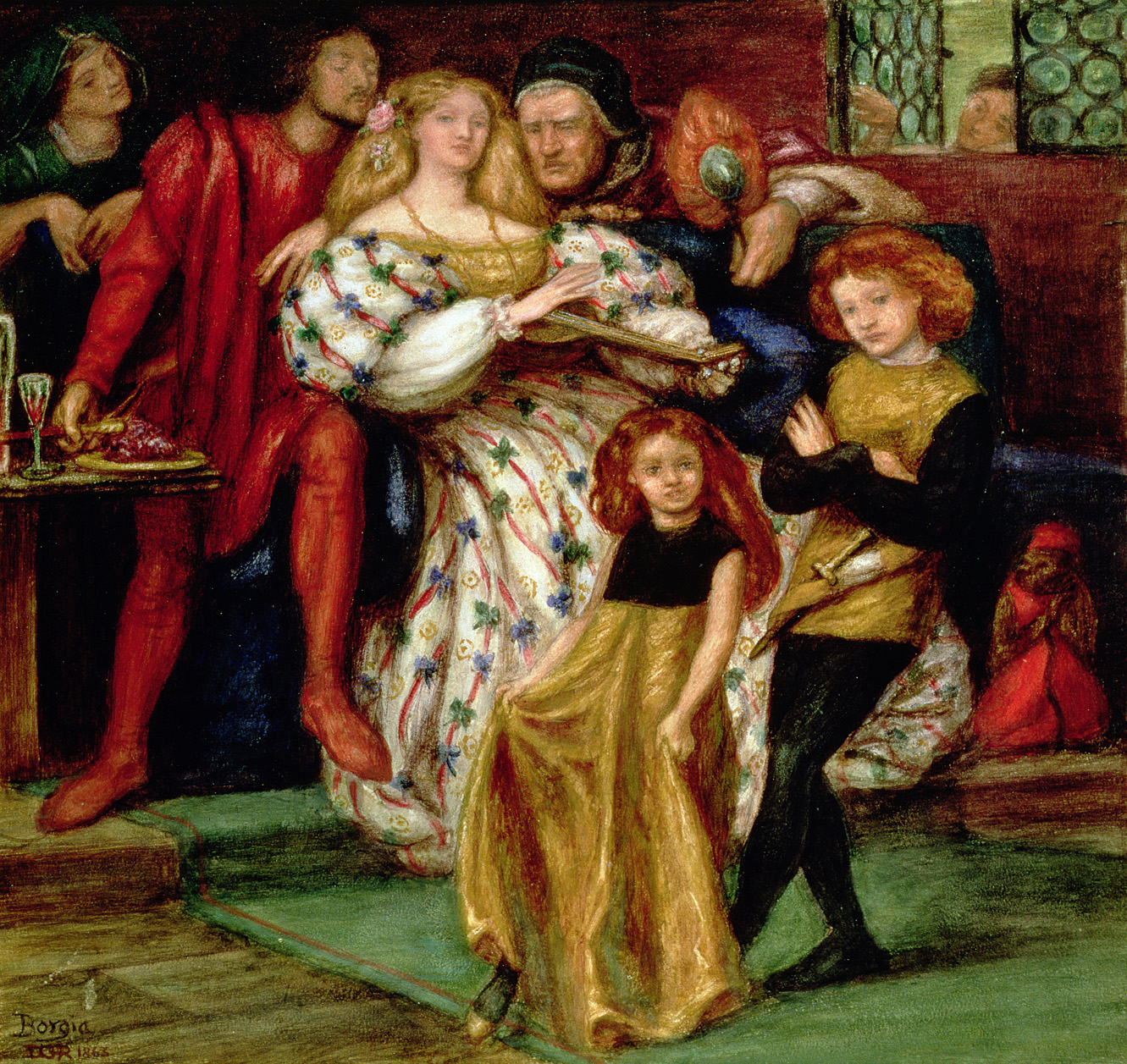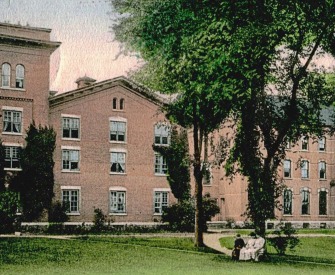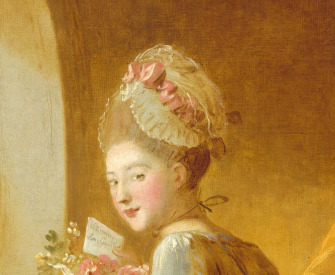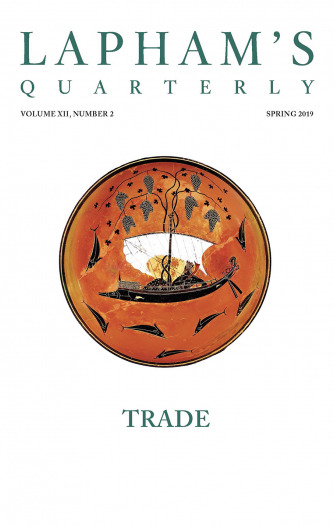The most socially subversive institution of our time is the one-parent family.
—Paul Johnson, 1989Between Sisters
Jane Austen gives an honest opinion.
“What a pity it is, Elinor,” said her sister Marianne, “that Edward should have no taste for drawing.”
“No taste for drawing!” replied Elinor, “why should you think so? He does not draw himself, indeed, but he has great pleasure in seeing the performances of other people; and I assure you he is by no means deficient in natural taste, though he has not had opportunities of improving it. Had he ever been in the way of learning, I think he would have drawn very well. He distrusts his own judgment in such matters so much that he is always unwilling to give his opinion on any picture, but he has an innate propriety and simplicity of taste, which, in general, direct him perfectly right.”
Marianne was afraid of offending and said no more on the subject, but the kind of approbation which Elinor described as excited in him by the drawings of other people was very far from that rapturous delight, which, in her opinion, could alone be called taste. Yet, though smiling within herself at the mistake, she honored her sister for that blind partiality to Edward which produced it.
“I hope, Marianne,” continued Elinor, “you do not consider him as deficient in general taste. Indeed, I think I may say that you cannot, for your behavior to him is perfectly cordial, and if that were your opinion, I am sure you could never be civil to him.”
Marianne hardly knew what to say. She would not wound the feelings of her sister on any account, and yet to say what she did not believe was impossible. At length she replied, “Do not be offended, Elinor, if my praise of him is not in everything equal to your sense of his merits. I have not had so many opportunities of estimating the minuter propensities of his mind, his inclinations and tastes, as you have; but I have the highest opinion in the world of his goodness and sense. I think him everything that is worthy and amiable.”
“I am sure,” replied Elinor, with a smile, “that his dearest friends could not be dissatisfied with such commendation as that. I do not perceive how you could express yourself more warmly.”
Marianne was rejoiced to find her sister so easily pleased.
“Of his sense and his goodness,” continued Elinor, “no one can, I think, be in doubt, who has seen him often enough to engage him in unreserved conversation. The excellence of his understanding and his principles can be concealed only by that shyness which too often keeps him silent. You know enough of him to do justice to his solid worth. But of his minuter propensities, as you call them, you have, from peculiar circumstances, been kept more ignorant than myself. He and I have been at times thrown a good deal together, while you have been wholly engrossed on the most affectionate principle by mother. I have seen a great deal of him, have studied his sentiments, and heard his opinion on subjects of literature and taste, and upon the whole, I venture to pronounce that his mind is well informed, his enjoyment of books exceedingly great, his imagination lively, his observation just and correct, and his taste delicate and pure. His abilities in every respect improve as much upon acquaintance as his manners and person. At first sight, his address is certainly not striking, and his person can hardly be called handsome till the expression of his eyes, which are uncommonly good, and the general sweetness of his countenance are perceived. At present, I know him so well that I think him really handsome, or, at least, almost so. What say you, Marianne?”
“I shall very soon think him handsome, Elinor, if I do not now. When you tell me to love him as a brother, I shall no more see imperfection in his face than I now do in his heart.”
Elinor started at this declaration, and was sorry for the warmth she had been betrayed into, in speaking of him. She felt that Edward stood very high in her opinion. She believed the regard to be mutual, but she required greater certainty of it to make Marianne’s conviction of their attachment agreeable to her. She knew that what Marianne and her mother conjectured one moment, they believed the next—that with them, to wish was to hope, and to hope was to expect. She tried to explain the real state of the case to her sister.
“I do not attempt to deny,” said she, “that I think very highly of him—that I greatly esteem, that I like him.”
Marianne here burst forth with indignation: “Esteem him! Like him! Cold-hearted Elinor! Oh, worse than cold-hearted! Ashamed of being otherwise. Use those words again, and I will leave the room this moment.”

Borgia Family, by Dante Gabriel Rossetti, 1863. Tullie House Museum and Art Gallery, Carlisle, United Kingdom.
Elinor could not help laughing. “Excuse me,” said she, “and be assured that I meant no offense to you by speaking in so quiet a way of my own feelings. Believe them to be stronger than I have declared; believe them, in short, to be such as his merit, and the suspicion—the hope of his affection for me may warrant, without imprudence or folly. But further than this you must not believe. I am by no means assured of his regard for me. There are moments when the extent of it seems doubtful, and till his sentiments are fully known, you cannot wonder at my wishing to avoid any encouragement of my own partiality, by believing or calling it more than it is. In my heart I feel little—scarcely any doubt of his preference. But there are other points to be considered besides his inclination. He is very far from being independent. What his mother really is we cannot know, but from Fanny’s occasional mention of her conduct and opinions, we have never been disposed to think her amiable; and I am very much mistaken if Edward is not himself aware that there would be many difficulties in his way, if he were to wish to marry a woman who had not either a great fortune or high rank.”
Marianne was astonished to find how much the imagination of her mother and herself had outstripped the truth.
“And you really are not engaged to him!” said she. “Yet it certainly soon will happen. But two advantages will proceed from this delay. I shall not lose you so soon, and Edward will have greater opportunity of improving that natural taste for your favorite pursuit which must be so indispensably necessary to your future felicity. Oh! If he should be so far stimulated by your genius as to learn to draw himself, how delightful it would be!”
Elinor had given her real opinion to her sister.

Jane Austen
From Sense and Sensibility. The daughter of a reverend and an amateur poet, Austen was born in 1775, the seventh of eight children. She began Sense and Sensibility in 1795 and completed the first version of Pride and Prejudice, titled First Impressions, in 1797; the former was published in 1811, the latter in 1813. Austen received a proposal to marry around 1802; she accepted the offer on a winter evening and rescinded it with the rising of the next day’s sun.


